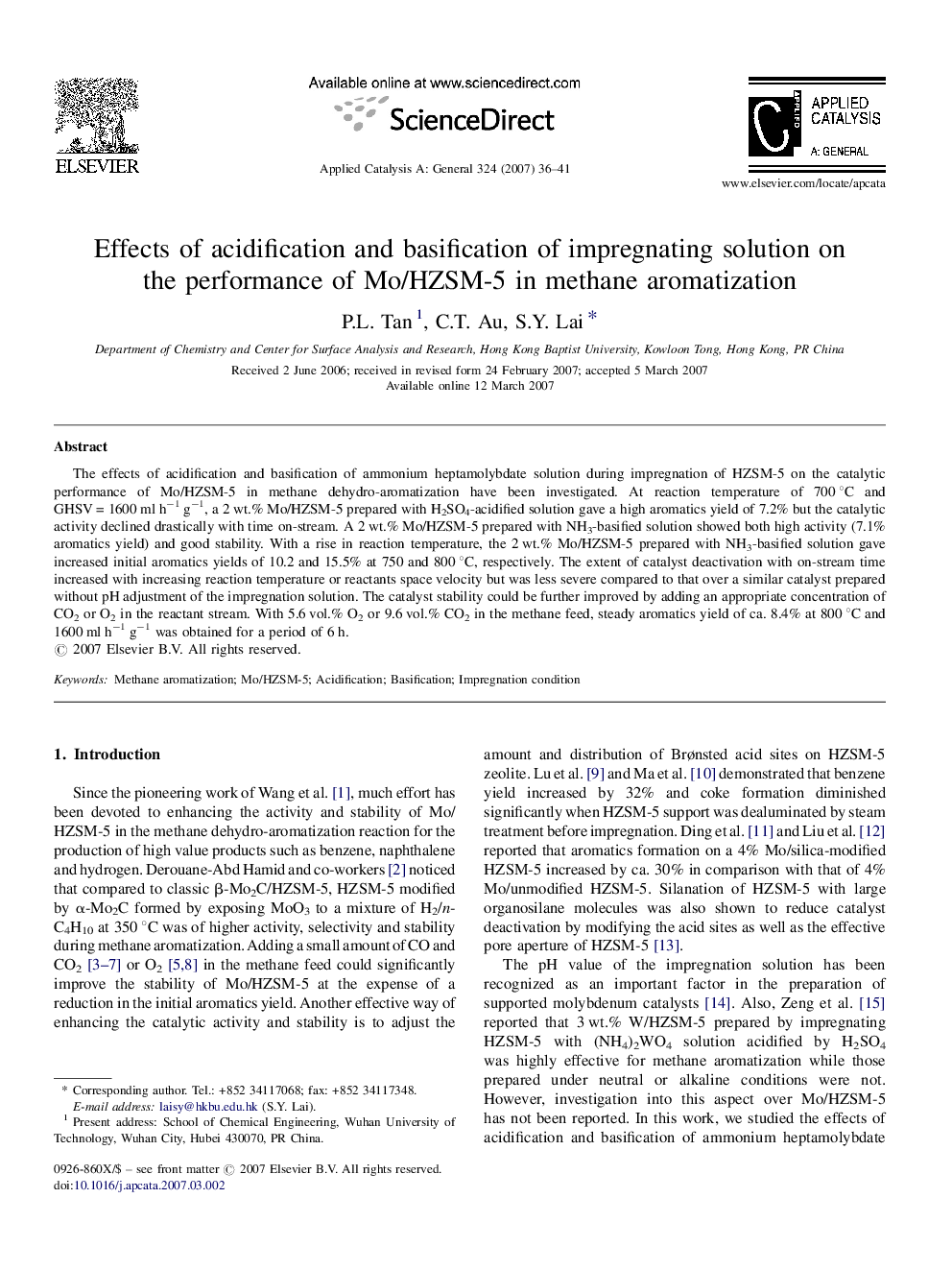| Article ID | Journal | Published Year | Pages | File Type |
|---|---|---|---|---|
| 44375 | Applied Catalysis A: General | 2007 | 6 Pages |
The effects of acidification and basification of ammonium heptamolybdate solution during impregnation of HZSM-5 on the catalytic performance of Mo/HZSM-5 in methane dehydro-aromatization have been investigated. At reaction temperature of 700 °C and GHSV = 1600 ml h−1 g−1, a 2 wt.% Mo/HZSM-5 prepared with H2SO4-acidified solution gave a high aromatics yield of 7.2% but the catalytic activity declined drastically with time on-stream. A 2 wt.% Mo/HZSM-5 prepared with NH3-basified solution showed both high activity (7.1% aromatics yield) and good stability. With a rise in reaction temperature, the 2 wt.% Mo/HZSM-5 prepared with NH3-basified solution gave increased initial aromatics yields of 10.2 and 15.5% at 750 and 800 °C, respectively. The extent of catalyst deactivation with on-stream time increased with increasing reaction temperature or reactants space velocity but was less severe compared to that over a similar catalyst prepared without pH adjustment of the impregnation solution. The catalyst stability could be further improved by adding an appropriate concentration of CO2 or O2 in the reactant stream. With 5.6 vol.% O2 or 9.6 vol.% CO2 in the methane feed, steady aromatics yield of ca. 8.4% at 800 °C and 1600 ml h−1 g−1 was obtained for a period of 6 h.
Graphical abstractMo/HZSM-5 catalyst prepared with a basic ammonium heptamolybdate solution showed improved Mo dispersion. This catalyst exhibited good activity and stability for the methane aromatization reaction. With the addition of 5.6 vol.% O2 or 9.6 vol.% CO2 in the methane feed, steady aromatics yield of ca. 8.4% could be obtained for a period of 6 h at 800 °C.Figure optionsDownload full-size imageDownload as PowerPoint slide
